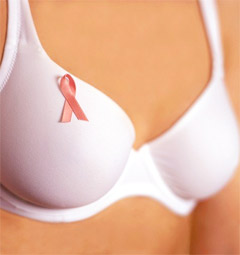|
|
Top 10 Health Priorities During Reproductive Years
 The years from 18 to 40 are
sometimes referred to as the reproductive years because most pregnancies occur
in women during these ages. Good habits-especially eating a nutritious,
well-balanced diet and exercising regularly-can also help you avoid chronic,
debilitating illnesses as you get older. If you are planning to become pregnant,
you should get your body into the best condition possible to help ensure a
healthy pregnancy and a healthy baby. If you are not planning a pregnancy,
following a healthy lifestyle will still help you feel better and look better.
It is just as important to avoid harmful habits- including smoking cigarettes,
drinking excessive amounts of alcohol, or taking illegal drugs. The years from 18 to 40 are
sometimes referred to as the reproductive years because most pregnancies occur
in women during these ages. Good habits-especially eating a nutritious,
well-balanced diet and exercising regularly-can also help you avoid chronic,
debilitating illnesses as you get older. If you are planning to become pregnant,
you should get your body into the best condition possible to help ensure a
healthy pregnancy and a healthy baby. If you are not planning a pregnancy,
following a healthy lifestyle will still help you feel better and look better.
It is just as important to avoid harmful habits- including smoking cigarettes,
drinking excessive amounts of alcohol, or taking illegal drugs.
Based on the input from the
American Medical Association, here is a list of your top 10 health priorities if
you are between 18 and 40:
 Quit
smoking Quit
smoking
Smoking is the most preventable cause of death. If you
smoke, quitting is the most important thing you can do for your health.
Quitting
substantially reduces your risk of lung cancer and other cancers (including
cancers of the esophagus, mouth, pancreas, bladder, and cervix), heart disease
and stroke.
 Eat
a healthy diet Eat
a healthy diet
The healthiest changes you can make in your
diet are to reduce the amount of fat you eat and increase your intake of fruits,
vegetables, whole grains, and calcium- rich foods. Too much dietary fat can
raise your cholesterol level and increase your risk of high blood pressure,
heart disease, diabetes, stroke, and some forms of cancer. Eating lots of
fruits, vegetables, and whole grains can help reduce your risk of heart disease,
stroke, and cancer. Calcium is essential for maintaining the strength and
density of your bones. You should take in 1,000 to 1,500 milligrams of calcium
each day . One 8-ounce glass of skim milk has 300 milligrams of calcium. For
other good sources of calcium,
click
here.
  Exercise
regularly Exercise
regularly
Regular
physical activity � exercise that is done on most days � has many health
benefits. Begin with as little as 5 minutes a day and add 5 more minutes a week
until you can stay active for 30 minutes a day. Plan your exercise program to
suit your interests and lifestyle. If you choose activities that you like,
you're more likely to stick to it, which is most important. For example,
gardening and dancing are great forms of exercise. Don't forget to count
everyday chores and activities, such as climbing stairs, carrying bags, and
washing the car.
 Practice
safer sex Practice
safer sex
It can happen to anyone. Women of every age and every
socio-economic, educational, ethnic, and racial group get sexually transmitted
diseases (STDs) whether they have many sexual partners or one. Here are some
steps you can take to help protect yourself from STDs:
-
Think twice before
beginning sexual relations with a new partner. Limiting your sexual activity
to only one partner who is having sex only with you reduces your exposure to
disease- causing organisms.
-
When you have intercourse,
use a male condom made of latex or polyurethane (not natural materials) or a
female condom (which is made of polyurethane).
-
In addition to a condom,
always use a spermicide, which provides additional protection against STDs.
Some condoms are already lubricated with spermicide. You can also insert
spermicidal gel or foam into your vagina for extra protection.
-
A female condom protects
part of your external genitals as well as your vagina. Use a female condom
if your partner will not use a male condom.
-
Have annual pap smears and
tests for STDs.
 Don't
abuse alcohol or other drugs Don't
abuse alcohol or other drugs
Alcohol has a more potent effect
on women than it does on men. Drinking the same amount of alcohol, a woman is
affected more easily and more quickly than a man. Women experience the health
effects of long-term, heavy drinking sooner than men do and they die sooner than
from those effects. In part, this is because women are usually smaller and weigh
less than men. But it is also because women's bodies metabolize, or process,
alcohol more slowly than men's bodies. Women have lower levels than men of the
stomach enzymes that neutralize alcohol before it is absorbed into the
bloodstream. As a result, more alcohol goes directly into a woman's bloodstream,
raising her blood-alcohol level more quickly than in a man. Women are more
susceptible than men to liver damage form heavy drinking. Other alcohol-related
health problems including
high blood
pressure,
obesity,
anemia, and malnutrition
also affect women years earlier than men. Heavy drinking may increase a woman's
risk of stroke.
  Examine
your breasts every month Examine
your breasts every month
There is not known way to prevent breast
cancer. Your best hope is to detect a cancer at an early stage, when a cure is
more likely. Most breast lumps are discovered by women themselves during
regular, monthly breast self- examinations or by chance during bathing or
dressing. Most lumps in the breast are not cancerous, but you should tell
your doctor immediately about any lump you find.
Ask your doctor when you should
start having regular mammograms. Most doctors recommend that women begin in
their 40s. If you have a family history of breast cancer-especially in a close
relative, such as your mother or sister-your doctor may recommend that you start
having mammograms at a younger age. Even if you have regular mammograms, it is
important to do a monthly examination of your breasts by feeling with your hand
and looking in the mirror for any changes in their shape or contour.
 Plan
your pregnancies Plan
your pregnancies
Like any major event in your life, pregnancy
requires planning. Prepare your body for pregnancy by establishing healthful
habits-including eating a nutritious diet and exercising regularly and
eliminating unhealthy habits, such as smoking or drinking. If you have a family
history of a genetic disorder or birth defects, or if you are adopted and don't
know your family health history, counselor, who can help you evaluate your risk
of having a child with a birth defect.
 Protect
your skin from the sun Protect
your skin from the sun
Ultraviolet (UV) rays from the sun can cause
changes in your skin that may lead to cancer . Sun exposure is especially
dangerous if your skin is fair; light skin is more susceptible to cancer than
darker skin. To protect your
skin, avoid excessive exposure to the sun between
the hours of 10:00 AM and 3:00 PM, when radiation from the sun is most intense.
When you are in the sun, wear protective clothing, such as hats and long
sleeves, and use sunscreen. Most dermatologists recommend using a sunscreen on
exposed areas of your skin every day, especially if you have fair skin. Even in
moderation any exposure to the sun is damaging to your skin. The sue of tanning
beds is an increasing source of skin damage and aging. Doctors recommend that
you never use them.
  Consult
your doctor regarding the need for different medical tests such as
blood pressure, cholesterol, complete blood cell count, glucose, Bilirubin,
calcium, etc. Consult
your doctor regarding the need for different medical tests such as
blood pressure, cholesterol, complete blood cell count, glucose, Bilirubin,
calcium, etc.
Get a complete blood cell
count measured regularly - including the red cells, white cells, and
platelets, Red blood cells transport oxygen form the lungs to body
tissues; white blood cells fight infection; platelets help blood to clot. This
test can provide much helpful information. For example, a low level of red blood
cells indicates anemia and an elevated level of white blood cells indicates the
presence of infection.
Cholesterol level- A
cholesterol test is a measurement of the level of the level of fats in your
blood. A person's total cholesterol level is used as an indicator of his or her
risk of heart disease. If your total cholesterol level is below 200, you are
considered to be at low risk for heart disease. A total cholesterol level
between 200 and 239 is considered borderline; you are at moderate risk of heart
disease, depending on the presence of other risk factors such as smoking,
obesity, diabetes, or a family history of heart disease. A total cholesterol
level above 239 is abnormal and indicates increased risk of heart disease.
Glucose level- A normal
range is 70 to 110 milligrams per deciliter (mg/dl). A blood glucose test
measures the level of the sugar glucose in your blood. Your body uses glucose
for energy. Elevated levels of glucose in the blood can indicate diabetes . If
your glucose level is found to be elevated, further testing is necessary to
determine the cause.
Bilirubin range - A
normal range is 0.1 to 1.2 milligrams per deciliter (mg/dl). Bilirubin is an
orange-yellow pigment in bile a liquid secreted by the liver to remove
waste products and break down fats during digestion. An abnormal level of
Bilirubin can indicate liver disease or obstruction of the bile duct (the tube
that carries bile from the liver) that can result from a gallstone or a
pancreatic tumor. The accumulation of Bilirubin in the skin gives it a yellow
color, a condition called jaundice.
Calcium range- A normal
range is 9 to 10.5 milligrams per deciliter (mg/dl). Calcium is essential
for strong bones and teeth and teeth and for nerve and muscle function. A high
level may indicate a late stage of some types of cancer or over activity of the
parcium level in the blood. A low level may indicate poor absorption of calcium
by the intestines.
 Learn
to manage stress in your life Learn
to manage stress in your life
Many women face difficult challenges
and responsibilities as working women,
mothers, or care givers for aging parents. These roles may overlap or conflict,
causing overwhelming stress that can affect their heath. Emotional stress can
lead to high blood pressure, increased susceptibility to substance abuse and
illness, and depression. Here are some things you can do to help reduce or mange
the stress in your life:
-
Eat a healthy diet and
exercise regularly- A nutritious, well-balanced diet and exercise can keep
your body fit and able to resist disease. Exercise is also an excellent way
to elevate your mood.
-
Talk about it- Confide in
someone you trust-a friend, relative, or member of the clergy. Sometimes
just talking about your problems and concerns can help you put them into
perspective and give you insights into deal with them.
-
Stay organized- Good
organization can help you manage your time more efficiently, which can
reduce much of the time-related stress in your life. For example, make a
list of things you need to do and complete each task one at a time. Break
large projects into smaller, easy to mange parts. Carry a datebook with you
for keeping track of important appointments, projects, deadlines, and phone
and fax numbers.
-
Ask for help- No one
can do it all alone. Let family members, friends, or coworkers know that you
feel overloaded and ask them for help with specific tasks. People often
don't realize you need help until you ask for
it. And they will be
less demanding of your time if they are aware that you have little to spare.
-
Learn how to relax-
Relaxation techniques like
yoga, meditation,
deep breathing
are quick and
easy methods for calming your mind and body. Do them whenever you need a
little stress reduction.
-
Get professional help if
you need it- If you feel so over whelmed by your responsibilities that you
are having difficulty functioning normally, talk to your doctor. He or she
will be able to recommend treatment or refer you to a qualified psychiatrist
or other mental; health specialist.
If you abide by these health
priorities you stand a better chance of survival than your counterparts.
Dated 01 July 2011
|
|
|
|
|









